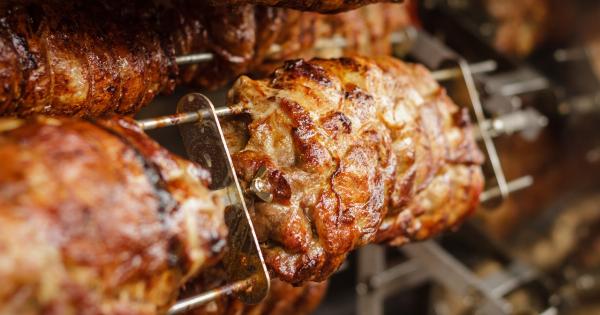Compulsive eating, also known as emotional eating or binge eating, is a common struggle among many individuals. It involves consuming large amounts of food in a short period of time, often driven by emotions or stressful situations.
This behavior can lead to negative physical and mental health outcomes, including obesity, depression, anxiety, and low self-esteem.
Are you struggling with compulsive eating?
If you are struggling with compulsive eating, you are not alone. Many individuals battle with this issue and it can be difficult to overcome on your own. However, there are resources and support systems available to help you overcome this challenge.
Anonymous super supporters
One of the most effective forms of support for those struggling with compulsive eating can come from individuals who have gone through or are going through similar experiences.
Hearing from others who have struggled or are currently struggling with the same issue can provide comfort, guidance, and encouragement.
Here are some anonymous super supporters who are willing to share their personal experiences and offer words of encouragement for those struggling with compulsive eating.
Testimonial 1
“I struggled with compulsive eating for years, and it took a toll on my physical and mental health. However, I was able to overcome it with the help of therapy and support from my loved ones. It wasn’t easy, but it was worth it.
My advice for those struggling is to seek help and don’t be afraid to ask for support. You are not alone and there is hope for healing.”.
Testimonial 2
“Compulsive eating was a vicious cycle for me. I would turn to food to cope with my emotions, but then feel guilty and ashamed afterward. This led to more emotional eating, which only made things worse.
However, with the help of a support group and learning new coping mechanisms, I was able to break the cycle and regain control over my eating habits.”.
Testimonial 3
“One of the hardest things about compulsive eating is feeling like you’re powerless over your own behavior. It’s easy to beat yourself up and feel like you’re not strong enough to overcome it.
However, it’s important to remember that this is a real addiction and there is no shame in seeking help. It’s also important to be patient with yourself and take things one day at a time.”.
Resources and tips
Aside from seeking support from peers and loved ones, there are many resources and tips available to help those struggling with compulsive eating. Here are a few:.
1. Seek professional help
Therapy and counseling can be incredibly helpful in overcoming compulsive eating. A trained therapist can help you uncover the root causes of your behavior and provide you with effective coping mechanisms.
2. Practice mindful eating
Instead of eating mindlessly and unconsciously, try to be more present and mindful during meal times. Focus on the taste, smell, and texture of the food, and try to eat slowly and savor every bite.
3. Identify triggers
Compulsive eating is often triggered by certain emotions or situations. Identifying these triggers can help you prepare for them and find healthy ways to cope when they arise.
4. Find healthy alternatives
Instead of turning to food as a way to cope with negative emotions, try to find healthier alternatives. This could be exercise, meditation, journaling, or any other activity that brings you joy and helps you manage stress.
Conclusion
Compulsive eating can be a challenging and isolating experience, but there is help and support available.
Reaching out for help and listening to the experiences of others who have overcome similar struggles can be incredibly helpful in overcoming this issue. With patience, self-compassion, and the right resources, it is possible to break the cycle of compulsive eating and regain control over your health and wellbeing.
























